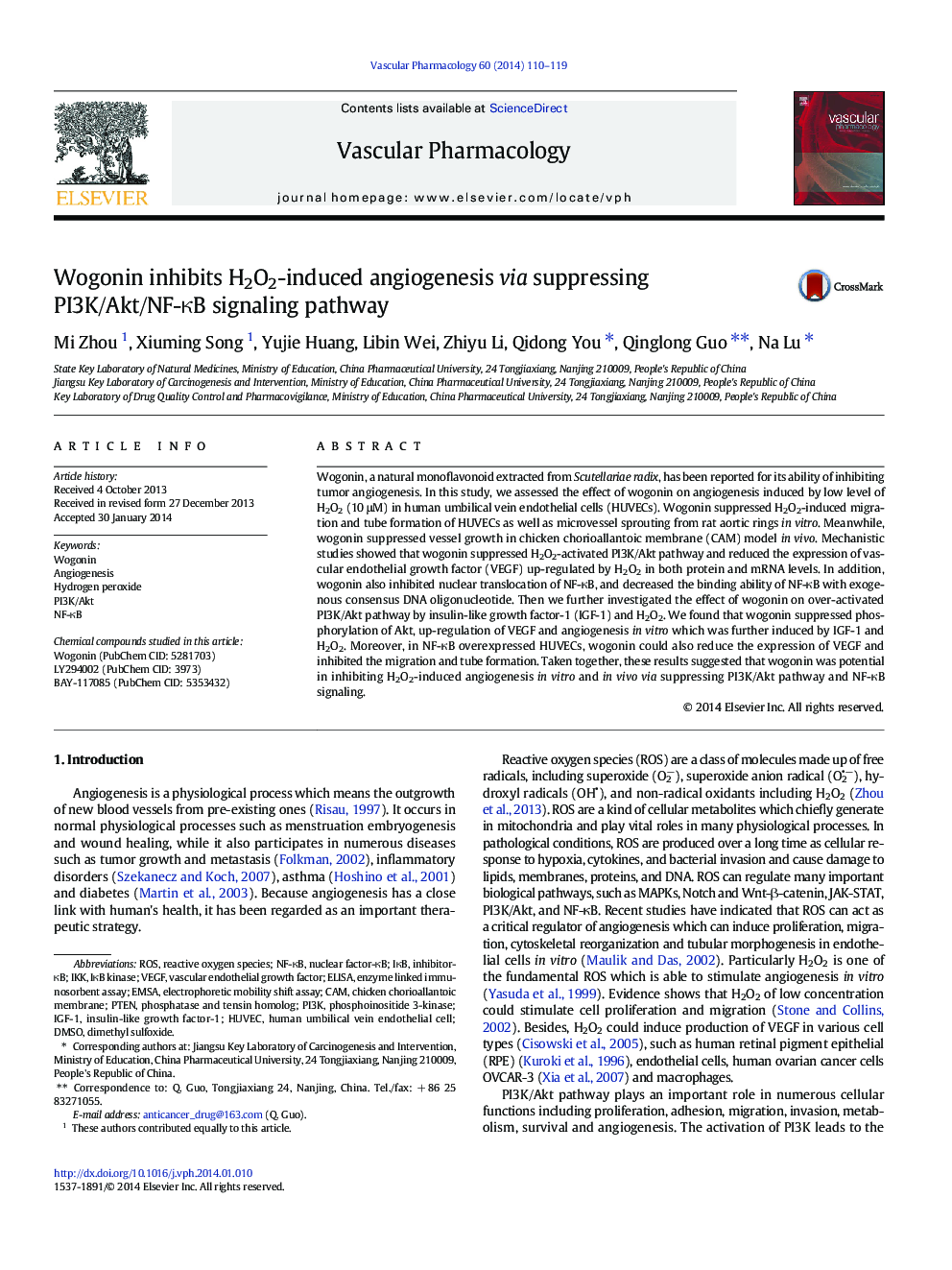| Article ID | Journal | Published Year | Pages | File Type |
|---|---|---|---|---|
| 2574221 | Vascular Pharmacology | 2014 | 10 Pages |
Wogonin, a natural monoflavonoid extracted from Scutellariae radix, has been reported for its ability of inhibiting tumor angiogenesis. In this study, we assessed the effect of wogonin on angiogenesis induced by low level of H2O2 (10 μM) in human umbilical vein endothelial cells (HUVECs). Wogonin suppressed H2O2-induced migration and tube formation of HUVECs as well as microvessel sprouting from rat aortic rings in vitro. Meanwhile, wogonin suppressed vessel growth in chicken chorioallantoic membrane (CAM) model in vivo. Mechanistic studies showed that wogonin suppressed H2O2-activated PI3K/Akt pathway and reduced the expression of vascular endothelial growth factor (VEGF) up-regulated by H2O2 in both protein and mRNA levels. In addition, wogonin also inhibited nuclear translocation of NF-κB, and decreased the binding ability of NF-κB with exogenous consensus DNA oligonucleotide. Then we further investigated the effect of wogonin on over-activated PI3K/Akt pathway by insulin-like growth factor-1 (IGF-1) and H2O2. We found that wogonin suppressed phosphorylation of Akt, up-regulation of VEGF and angiogenesis in vitro which was further induced by IGF-1 and H2O2. Moreover, in NF-κB overexpressed HUVECs, wogonin could also reduce the expression of VEGF and inhibited the migration and tube formation. Taken together, these results suggested that wogonin was potential in inhibiting H2O2-induced angiogenesis in vitro and in vivo via suppressing PI3K/Akt pathway and NF-κB signaling.
Graphical abstractFigure optionsDownload full-size imageDownload high-quality image (68 K)Download as PowerPoint slide
